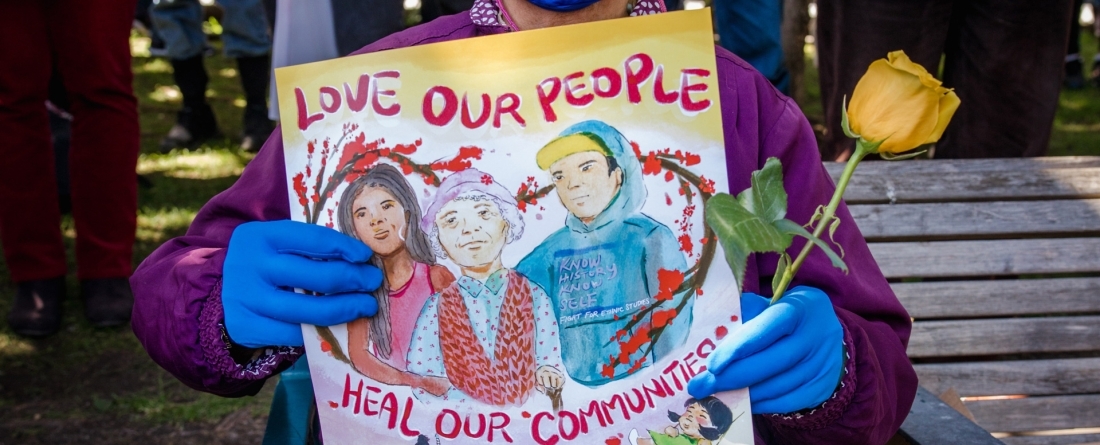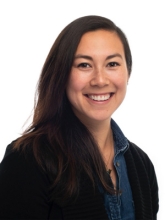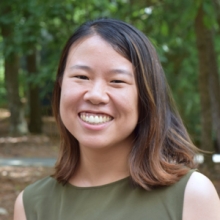
May is Asian American and Pacific Islander Heritage month, which allows us to pay tribute to the generations of Asian Americans and Pacific Islander Americans throughout the history of the United States and to celebrate their achievements and contributions.
We asked the SPP community what AAPI Heritage month means to them, who inspires them, and how we can join them in their antiracist work. Check back throughout the month as we add more voices!
"There is so much to be done dismantling systemic racism in every aspect of our lives...I want to see a truly equitable, inclusive, intersectional, and antiracist world for my peers and future generations."
-Ella Clarke, MPP '21
What does being an Asian American in the policy sphere mean to you, and how does your identity play a part in your work?
Being Asian American and biracial, my identity is constantly a part of my work. As a woman of color who benefits from white-passing privilege, it's taken me a really long time to come to terms with both being a part of white and BIPOC spaces but not fitting exactly into either one. I think this identity struggle allows me to meet people where they're at and understand a broad swath of lived experiences while constantly working towards dismantling racist systems and institutions.
Is there someone in the field who has influenced you, or who has a story that is interesting to you?
No one in the field, per se, but my great grandparents give me incredible inspiration to do antiracist work every day. My great grandfather immigrated from China as a paper son in the early 1900s after the passage of the Chinese Exclusion Act and was interned at Angel Island for three months being interrogated by U.S. immigration officers before being allowed into the country. His and my great grandmother's sacrifices to make a better life for our family have constantly pushed me to fight for a more inclusive, antiracist society.
Where is your antiracist work located, and what does it involve?
I try my best (though don't always succeed) to locate my antiracist efforts in all aspects of my life. This means bringing my lived experiences as a woman of color into the classroom and doing the continuous work and learning to try to be an ally to other communities. It also means working as the PSGA director of diversity and inclusion to help build community and safe spaces for BIPOC students and push the SPP administration on its diversity, inclusion, and belonging efforts.
I do this work because it's the right thing to do. This work is important to me because there is so much to be done dismantling systemic racism in every aspect of our lives, and because I want to see a truly equitable, inclusive, intersectional, and antiracist world for my peers and future generations.
Do you have any resources, readings or recommendations for the SPP Community? How can they get involved or be more active in this work?
There has been an immense rise in hate crimes against the AAPI community during the COVID-19 pandemic. I would encourage everyone to support Stop AAPI Hate, an organization that's tracking hate crimes against the AAPI community around the country, the AAPI Community Fund, and find a full list of resources on how to help asian communities here. Another resource is centered around May 31, which will be a National Day of Solidarity Against AAPI Hate.
Also, please support your local AAPI owned businesses, check in on members of the AAPI community that you know, and please - if you see something, say something!
"While one of my goals is to contribute to well researched climate policies, I’m also cognizant of the fact that creating good and just policies means we need to amplify the voices of communities who often don’t get a seat at the table."
-Alicia Zhao, Research Associate
What does being an Asian American in the policy sphere mean to you, and how does your identity play a part in your work?
As an Asian American woman who has lived in both Asia as well as the U.S., my identity plays a big part in my work. I am aware of nuanced ways in which American culture differs from other cultures, which makes it easier for me to understand the importance of listening to those who don’t look like or think like the majority. In the policy sphere, it means that I have a vested interest in how policy outcomes may impact BIPOC and lower income communities differently. While one of my goals is to contribute to well-researched climate policies, I’m also cognizant of the fact that creating good and just policies means we need to amplify the voices of communities who often don’t get a seat at the table.
Is there someone in the field who has influenced you, or who has a story that is interesting to you?
No single person comes to mind, but I am constantly inspired by activists who are fighting every day to speak up for and bring justice to marginalized communities. I am also humbled by immigrant families and their resilience toward the everyday challenges of living in the U.S.
Where is your antiracist work located, and what does it involve?
Antiracist work is a fairly new area of my life, and I am always looking for ways to better incorporate it. My interest started during my graduate program at Duke University, where I was introduced to environmental justice and learned about the importance of listening to what the community needs instead of imposing your ideas onto them. Through my master’s thesis, I had the opportunity to interview BIPOC communities impacted by hurricanes in North Carolina, and I learned about the inequities associated with the distribution of relief funding.
Since then, I’ve been trying to learn more about racism and its history in other contexts by reading books and articles, listening to podcasts, and attending events related to this topic. I recently became involved with the National Asian Pacific American Women’s Forum, which focuses on elevating AAPI women through a reproductive justice framework. In the future, I hope to incorporate environmental justice work into my career.
This work is important to me because we need more voices at the table, and I believe in a more just, equitable and inclusive world.
Do you have any resources, readings or recommendations for the SPP Community? How can they get involved or be more active in this work?
Don’t be intimidated if you don’t know much about antiracism – everybody has to start somewhere! The easiest thing to do is to educate yourself on this topic; you can start with a book, an article, or a podcast. “Minor Feelings” by Cathy Park Hong is a book specific to the Asian American experience that is on my list to read. I’ve also attended bystander intervention trainings by the organization Hollaback, and those have been helpful as well.


